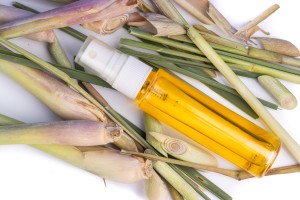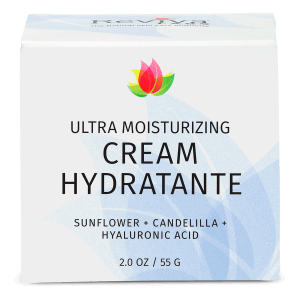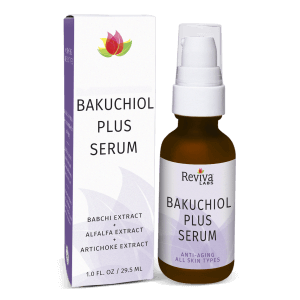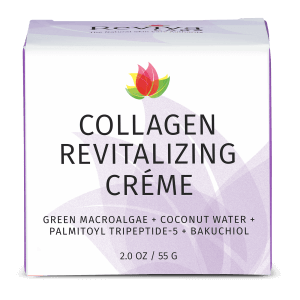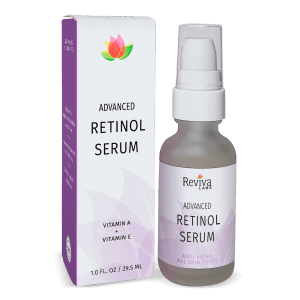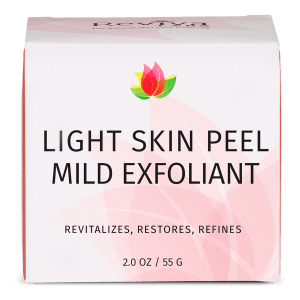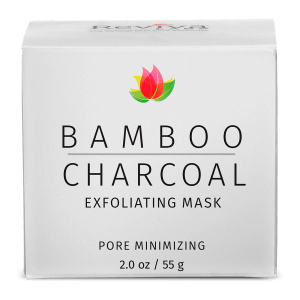Clean Beauty, Ingredients, Reviva Labs, Skin Care
Skincare trends in 2023
Skincare is constantly evolving, and as we move into 2023, we can expect to see some interesting and some exciting skin-care trends. From skin cycling to postbiotics, some of the most searched skin-care trends according to the predictions of dermatologists and beauty experts.
Skin cycling
One of the most talked-about skin-care trends of later 2022 and continuing into 2023 is skin cycling. This trend involves alternating between different active ingredients in your skincare routine to maximize their effectiveness and reduce any potential irritation.
In the simplest form, skin cycling is a four-night skincare regimen that involves one night of exfoliation, one night of retinoid use, and two consecutive nights of recovery. Exfoliating serums and retinoids can be powerful and effective products, but they can be very irritating for many people if used too frequently. Skin Cycling gives your face a chance to heal in between treatments and helps you to reap the benefits of these products with a lower risk of annoying side effects. It’s also an easy routine to use and is particularly useful in people who are sensitive and can’t tolerate harsh ingredients daily.
However, your skin cycling routine may need to be tailored to your personal needs over time. People with certain skin conditions and those who use prescription medications should always check in with a dermatologist before trying out a new routine.
Reviva has long advocated this type of routine, we just didn’t have a catchy name for it. Our skin professionals would often tell you to alternate the use of our products to avoid overwhelming your skin and to deliver different treatments on subsequent nights.
Treating the skin’s microbiome
Another 2023 trend is prebiotics and probiotics. Prebiotics and probiotics are said to balance the microbiome, staving off infections and conditions such as eczema. Prebiotics and probiotics can also help with pH balance and promote collagen formation.
The skin microbiome plays an important role in maintaining healthy skin. To treat the skin’s microbiome, you should avoid harsh cleansers and skincare products, eat a healthy diet with prebiotics and probiotics, add skin barrier repair products, keep a slightly acidic skin surface, and use sunscreen and skincare regimens that maintain the skin’s homeostasis.
Admittedly, Reviva is still monitoring the concept of treating the skin’s microbiome. It’s a complicated issue since everyone’s skin is unique. Now, we’re not fans of the one size fits all approach some brands are advertising when it comes to the skin’s microbiome. Reviva is taking a wait and see approach – and dabbling behind the scenes.
Topical ATP
Adenosine triphosphate (ATP) is another rising star in the skin-care world. This ingredient is said to boost fibroblast function and ATP levels, providing younger-looking skin. Many brands are formulating products with this ingredient.
Adenosine Triphosphate (ATP) is the energy-carrying molecule that is found in the cells of all living things. This nutrient applied topically can help provide anti-aging protection, as well as skin-moisturizing and soothing properties. Additionally, as a major energy molecule for all intracellular processes, ATP also plays a major role in skin rejuvenation. Studies have shown that repeated use of topical ATP can result in younger, more radiant-looking skin. In skincare, ATP is often paired with D-ribose, a naturally occurring carbohydrate. D-ribose regenerates ATP levels, which may help to improve skin function. Together, this duo combination can be infused into topical skincare products such as moisturizing lotions and creams, as well as anti-aging serums to produce more radiant, youthful, healthy-looking skin.
Reviva’s Peptide Facial Skin Prep and our Skin Energizing Gels take a slightly different approach to “energizing” the skin by delivering minerals and trace minerals topically. They crucial elemental components can help stimulate the skin and promote skin health. But the combination of ATP and D-ribose is an area of study too.
Skin Psyche
The mind-skin connection is also being addressed in 2023. Psychodermatology is a rapidly growing area of medicine, as experts are beginning to understand the relationship between mental health and skin health. It’s widely known that the stress hormone cortisol negatively effects your health – and that includes your skin. So, it’s no surprise that the beauty industry is also taking a mental health-first approach this year – after a long stretch of stress filled years.
Psychodermatology is a recent field of study that concentrates on the relationship between the mind and the skin. At the embryonic stage, the ectoderm links the two. There is a complex interplay between the skin and the neuroendocrine and immune systems. Skin is capable of perceiving both inward and outward inputs; it can take in external hints and express internal states. Psychodermatology mainly focuses on figuring out and managing psychological and psychiatric issues related to skin conditions. Treatment for this includes psychotherapy, psychoeducation, and psychopharmacological methods.
Reviva has long been a supporter of the idea of mind and body balance. The skin is your largest organ and the one under constant bombardment from the world. So, it’s understandable that a positive mindset along with healthy living and good skin care will amplify results.
It’s OK to be “unclean”
The “unclean beauty” trend is also gaining traction in 2023, as experts are attempting to end the fearmongering and misinformation about skin-care formulas. Instead of relying on opinions, brands are providing more information about their products so that consumers can make their own decisions.
Brands are “defying” clean beauty because of the lack of government oversight of cosmetics. The over blown touting of natural and organic ingredients is tantamount to greenwashing, where companies use misleading marketing to make it seem like their products are natural when they may not actually be organic, sustainable, or ethically made. Additionally, there is a lack of education from the brands themselves, leading to consumer confusion around the differences between “natural beauty” and “clean beauty.” So, some brands are rebelling and talking instead about how “smart science” leads to “smart skincare” and great results.
This topic a near and dear to us too. We classify Reviva as functional treatment skincare. From its early days, Stephen focused on using good ingredients that affected change in the skin. He would see a skin problem and develop a product to treat it. Yes, he’d choose natural ingredients but he (as do we now) embraced modern skin science too. From peptides to new botanicals and everything in between – Reviva is constantly evaluating ingredients and making smart choices to keep our products safe, effective, and planet friendly.
Slugging continues
Finally, the trend of “slugging” is still going strong, and it’s likely to be seen all over social media feeds in 2023. Slugging involves applying a thin layer of Vaseline, Aquaphor, or similar heavy occlusive moisturizers before bed. This thick layer helps to trap moisture against the skin overnight leaving it better hydrated and nourished in the AM.
Of course, for those that try to avoid petroleum-based products we always suggest our Cream Hydratante Crème. It’s a thick, heavy cream, suitable for slugging, that seems to be a love it or hate it product (with not in between). But it’s one that works wonders if you’re in the love it group.
We’re sure other trends will continue to emerge during 2023. Some good, some bad, and some simply goofy that leave us scratching our heads wondering why. So, until the next TikTok trends debuts… we’ll be selling our sensible, simple, skincare to those who like results!






